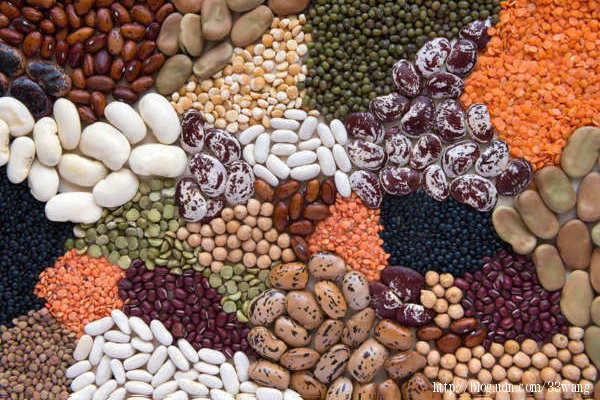

 字體:小 中 大
字體:小 中 大 |
|
|
|
| 2017/06/07 11:41:24瀏覽1517|回應9|推薦43 | |
大概因為川普想退出巴黎氣候協定,地球暖化議題最近廣受重視。今天讀到NOVA頻道的一篇文章"Want to Help Fight Climate Change? Try Eating Some Beans"(想幫忙抵抗氣候變遷嗎? 試著吃豆子吧),覺得蠻有意思。試譯出來分享,斜體字是我查到的引用資料和一點想法。 根據(美國農業部)統計,2016年平均每個美國人吃掉將近56磅牛肉,(另外還有50磅豬肉,91磅雞肉,16.7磅火雞肉。米國人真是肉食者 !) 由於牛類排出大量甲烷,對牛肉的需求最終提高了溫室效應。
有一種比牛肉便宜又健康,卻偏偏讓人想到脹氣的替代食品,那就是豆子。在今年4月出版的"氣候變遷"(Climatic Change)期刊上,科學家指出: 如果美國人不吃牛肉改吃豆子,在2020年將可達到50%以上降低溫室氣體的目標。 研究者之一,Loma Linda大學的營養、健康生活、與疾病防治中心主任Joan Sabaté說: "論文主要是闡明,只要改變一項飲食習慣,就能產生巨大的降低溫室氣體排放的效果。即使不制定新的汽車或工廠標準,美國也可以達到一半以上降低溫室氣體的目標。" 論文強調牛肉是碳排放量最高的食物。因為牛不論打嗝放屁都釋放甲烷,這是一種強烈的溫室效應氣體。以豆類代替牛肉,相同重量能產生更多卡路里(熱量)和蛋白質,卻排出極少的碳。 若從改變飲食習慣來減緩地球暖化,豆類取代牛肉也不是唯一的選擇。另一項研究指出,如果全世界以蟋蟀、麵包蟲等昆蟲來取代一半肉品消耗,可以減少三分之一的農地需求。(回到古早時代,蟋蟀也不夠呀 同樣是草食性動物,袋鼠不像牛排放那麼多甲烷,這是因為兩種動物腸子裡的消化菌不同。如果科學家想出辦法把牛的消化菌換成袋鼠腸子裡的,也許就可以減緩地球暖化了。(只是運用到基因改造,很多人一定不接受。) 好消息是從2005到14年的十年間,美國人的牛肉消耗量減少了19%,想進一步大幅改變可能需要幾年甚至幾十年時間。這項研究初步顯示: 只要換一種食物,我們就可能在2020年達到預定降低溫室氣體目標的74%。(所以,大家一起吃豆子吧 * 只是,要美國人完全放棄牛肉是不可能的。吃豆子還說得過去,吃蟋蟀? yuck 原文: Want to Help Fight Climate Change? Try Eating Some Beans Posted by Allison Eck In 2016, Americans each ate an average of nearly 56 pounds of beef. Those demands on livestock end up increasing greenhouse gas production, since cows emit methane in large quantities.蟋蟀 But a less expensive and more healthful alternative to beef is something that most people associate with gas: beans. A team of scientists publishing in the journal Climatic Change say that a nationwide effort to swap beef with beans could help the U.S. meet more than 50% of its emissions goals by the year 2020. Here’s Marlene Cimons, reporting for Popular Science:
Replacing beef with beans isn’t the only option. One recent study suggests that substituting half of the meat consumed worldwide with crickets and mealworms could cut farmland use by one-third. Moreover, the remaining two-thirds could be managed in a more eco-friendly way if we look to kangaroo farts for inspiration, reports Gross Science host Anna Rothschild: Cows burps release a ton of methane into the atmosphere. Can other animals, like kangaroos, teach us how to make cow gas more eco-friendly?
The good news is that Americans cut their beef consumption from 2005 to 2014 by 19%, according to the Natural Resources Defense Council. An even more dramatic shift in eating habits along these lines could take years or decades—but this new study is the first to indicate that by simply swapping one food for another, we could achieve up to 74% of the greenhouse gas reductions that we need to make our 2020 target. |
|
| ( 時事評論|環保生態 ) |




 !
! )。
)。





